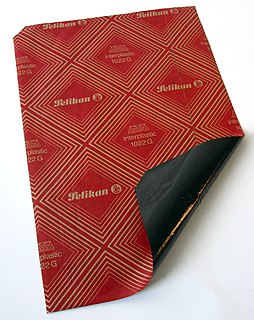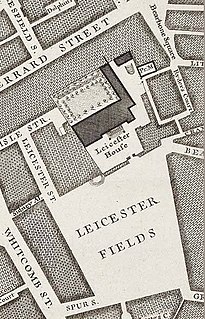Collateral estoppel (CE), known in modern terminology as issue preclusion, is a common law estoppel doctrine that prevents a person from relitigating an issue. One summary is that, "once a court has decided an issue of fact or law necessary to its judgment, that decision ... preclude[s] relitigation of the issue in a suit on a different cause of action involving a party to the first case". The rationale behind issue preclusion is the prevention of legal harassment and the prevention of overuse or abuse of judicial resources.

Step-Saver Data Systems, Inc. v. Wyse Technology was a case in the U.S. Court of Appeals for the Third Circuit primarily concerned with the enforceability of box-top licenses and end user license agreements (EULA) and their place in U.S. contract law. During the relevant period, Step-Saver Data Systems was a value-added reseller, combining hardware and software from different vendors to offer a fully functioning computer system to various end users. Step-Saver's products included software produced by Software Link, Inc (TSL), computer terminals produced by Wyse Technology, and main computers produced by IBM. The fundamental question raised in this case was whether the shrinkwrap licenses accompanying TSL's software were legally binding, given that different terms were negotiated over the phone with Step-Saver prior to receiving physical copies of the software. The case was first heard in the United States District Court for the Eastern District of Pennsylvania, where the court ruled that the shrinkwrap licenses were legally binding. However, the U.S. Court of Appeals for the Third Circuit subsequently reversed this decision, ruling that the shrinkwrap licenses were not legally binding.

The doctrine of privity of contract is a common law principle which provides that a contract cannot confer rights or impose obligations upon any person who is not a party to the contract.

Carlill v Carbolic Smoke Ball Company [1892] EWCA Civ 1 is an English contract law decision by the Court of Appeal, which held an advertisement containing certain terms to get a reward constituted a binding unilateral offer that could be accepted by anyone who performed its terms. It is notable for its curious subject matter and how the influential judges developed the law in inventive ways. Carlill is frequently discussed as an introductory contract case, and may often be the first legal case a law student studies in the law of contract.
Consideration is an English common law concept within the law of contract, and is a necessity for simple contracts. The concept of consideration has been adopted by other common law jurisdictions, including the US.

A collateral contract is usually a single term contract, made in consideration of the party for whose benefit the contract operates agreeing to enter into the principal or main contract, which sets out additional terms relating to the same subject matter as the main contract. For example, a collateral contract is formed when one party pays the other party a certain sum for entry into another contract. A collateral contract may be between one of the parties and a third party.

Smith v Hughes (1871) LR 6 QB 597 is an English contract law case. In it, Blackburn J set out his classic statement of the objective interpretation of people's conduct when entering into a contract. The case regarded a mistake made by Mr. Hughes, a horse trainer, who bought a quantity of oats that were the same as a sample he had been shown. However, Hughes had misidentified the kind of oats: his horse could not eat them, and refused to pay for them. Smith, the oat supplier, sued for Hughes to complete the sale as agreed. The court sided with Smith, as he provided the oats Hughes agreed to buy. That Hughes made a mistake was his own fault, as he had not been misled by Smith. Since Smith had made no fault, there was no mutual mistake, and the sale contract was still valid.

In Henningsen v. Bloomfield Motors, Inc., 32 N.J. 358, 161 A.2d 69, the New Jersey Supreme Court held that an automobile manufacturer's attempt to use an express warranty that disclaimed an implied warranty of merchantability was invalid.

Rose & Frank Co v JR Crompton & Bros Ltd [1924] UKHL 2 is a leading decision on English contract law, regarding the intention to create legal relations in commercial arrangements. In the Court of Appeal, Atkin LJ delivered an important dissenting judgment which was upheld by the House of Lords.

A contract is a legally enforceable agreement that creates, defines, and governs mutual rights and obligations among its parties. A contract typically involves the transfer of goods, services, money, or a promise to transfer any of those at a future date. In the event of a breach of contract, the injured party may seek judicial remedies such as damages or rescission. Contract law, the field of the law of obligations concerned with contracts, is based on the principle that agreements must be honoured.

Daulia Ltd v Four Millbank Nominees Ltd [1977] is an English contract law case, concerning unilateral contracts, and when embarking on the performance of an act for which an offer is open, at what point the offer may be withdrawn. In particular, Goff LJ observed that there would be a duty to not prevent full performance of terms in a unilateral offer, once performance had begun.

City and Westminster Properties (1934) Ltd v Mudd [1959] Ch 129 is an English contract law case, regarding the parol evidence rule. It illustrates one of the large exceptions, that a written document is not deemed to be exhaustive of the parties intentions when there is clear evidence of a collateral contract. It shows that even evidence from outside a written agreement may contradict evidence inside it.

Friend v. Childs Dining Hall Co., 231 Mass. 65, 120 N.E. 407 (1918), is part of a progression of cases that influenced the products liability synthesis that emerged in the 1930s. These cases influenced Judge Cardozo's argument in MacPherson v. Buick Motor Co. that a person could be liable for a defective product to someone other than the immediate purchaser. This created the law of product liability.

Chysky v. Drake Bros. Co., 235 N.Y. 468, 139 N.E. 576 (1922), was a products liability case before the New York Court of Appeals. The Court held that a plaintiff cannot recover from a defendant based on implied warranty when she does not have contractual privity with him; thus, a plaintiff cannot recover from a defendant who sold her employer food unfit for consumption, because the defendant's implied warranty extended only to the employer.
Cooper Manufacturing Co. v. Ferguson, 113 U.S. 727 (1885), was a suit regarding the legitimacy of a sale of a steam engine and other machinery in the State of Ohio.

Williams v Natural Life Health Foods Ltd[1998] UKHL 17 is an important English tort law, company law and contract law case. It held that for there to be an effective assumption of responsibility, there must be some direct or indirect conveyance that a director had done so, and that a claimant had relied on the information. Otherwise only a company itself, as a separate legal person, would be liable for negligent information.
Privity is a doctrine in English contract law that covers the relationship between parties to a contract and other parties or agents. At its most basic level, the rule is that a contract can neither give rights to, nor impose obligations on, anyone who is not a party to the original agreement, i.e. a "third party". Historically, third parties could enforce the terms of a contract, as evidenced in Provender v Wood, but the law changed in a series of cases in the 19th and early 20th centuries, the most well known of which are Tweddle v Atkinson in 1861 and Dunlop Pneumatic Tyre v Selfridge and Co Ltd in 1915.

Tulk v Moxhay is a landmark English land law case that decided that in certain cases a restrictive covenant can "run with the land" in equity. It is the reason Leicester Square exists today.

Linden Gardens Trust Ltd v Lenesta Sludge Disposals Ltd[1993] UKHL 4, [1994] 1 AC 85 is the short title for a judicial decision of conjoined appeals in the Judicial Committee of the House of Lords in relation to the relevance of continued privity of contract following assignment of property under English contract law.
Callisher v Bischoffsheim (1869–70) LR 5 QB 449 is an English contract law case concerning consideration. It held that the compromise of a disputed claim made bonâ fide is a good consideration for a promise, even if it ultimately appears that the claim was wholly unfounded.













